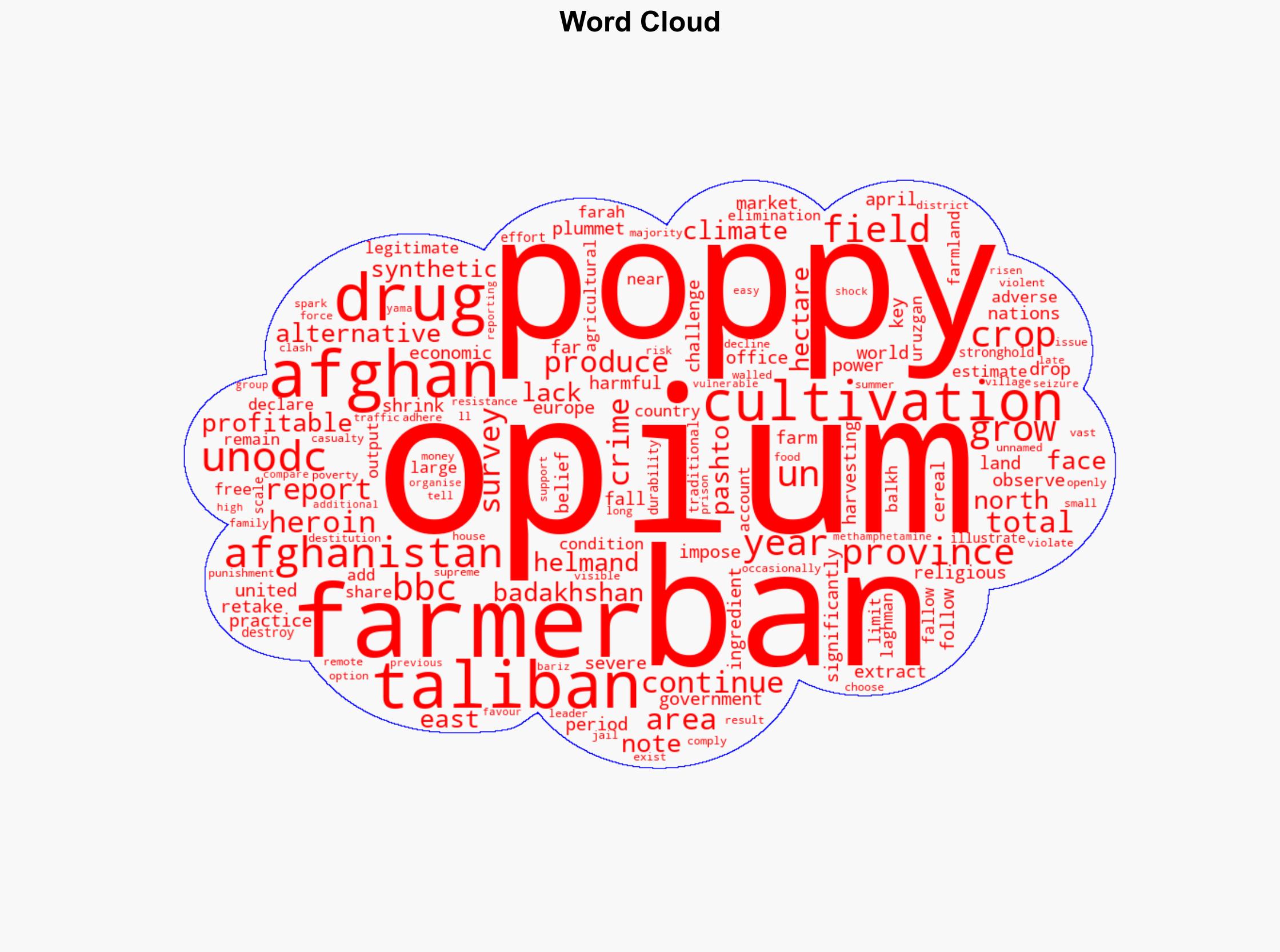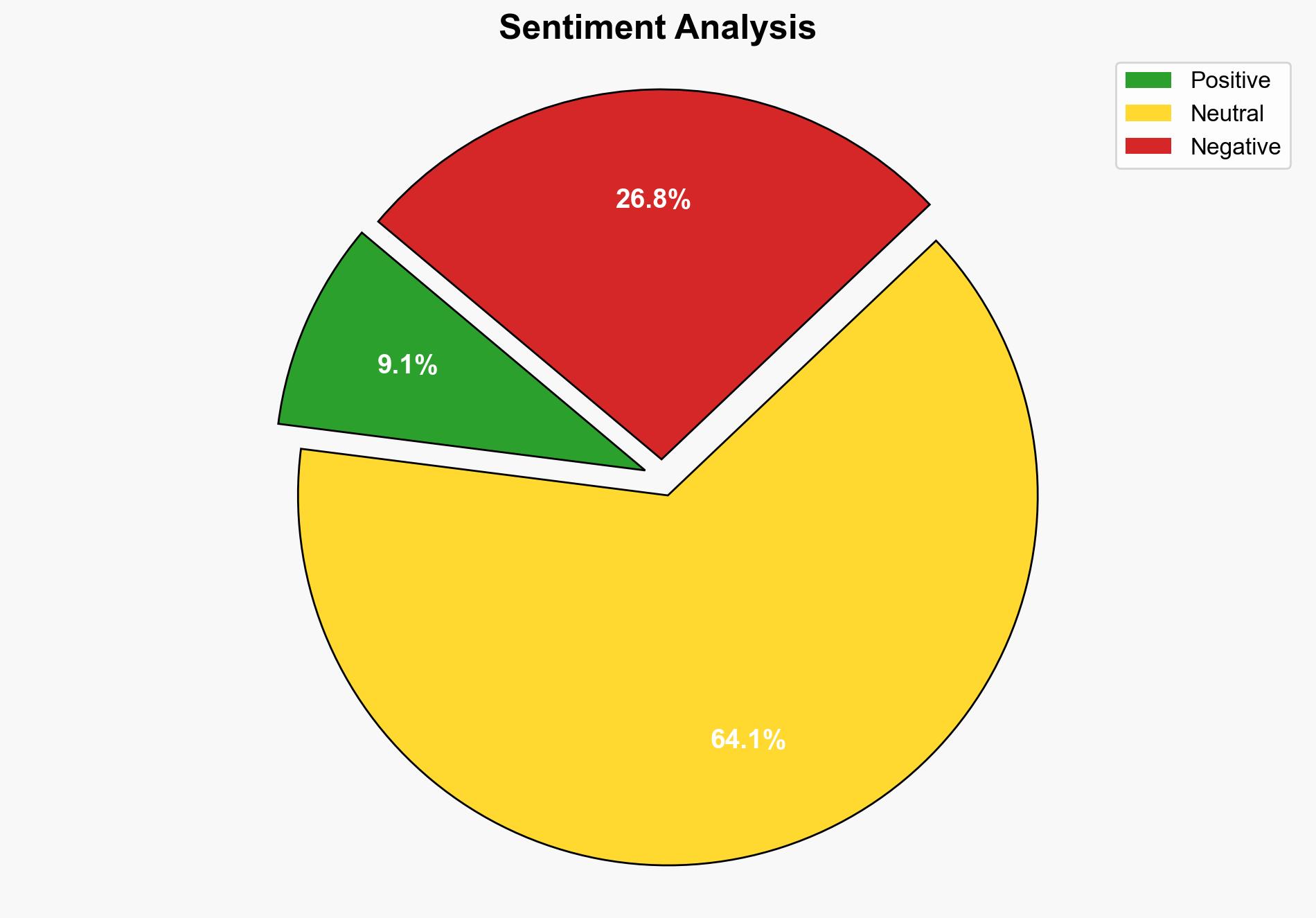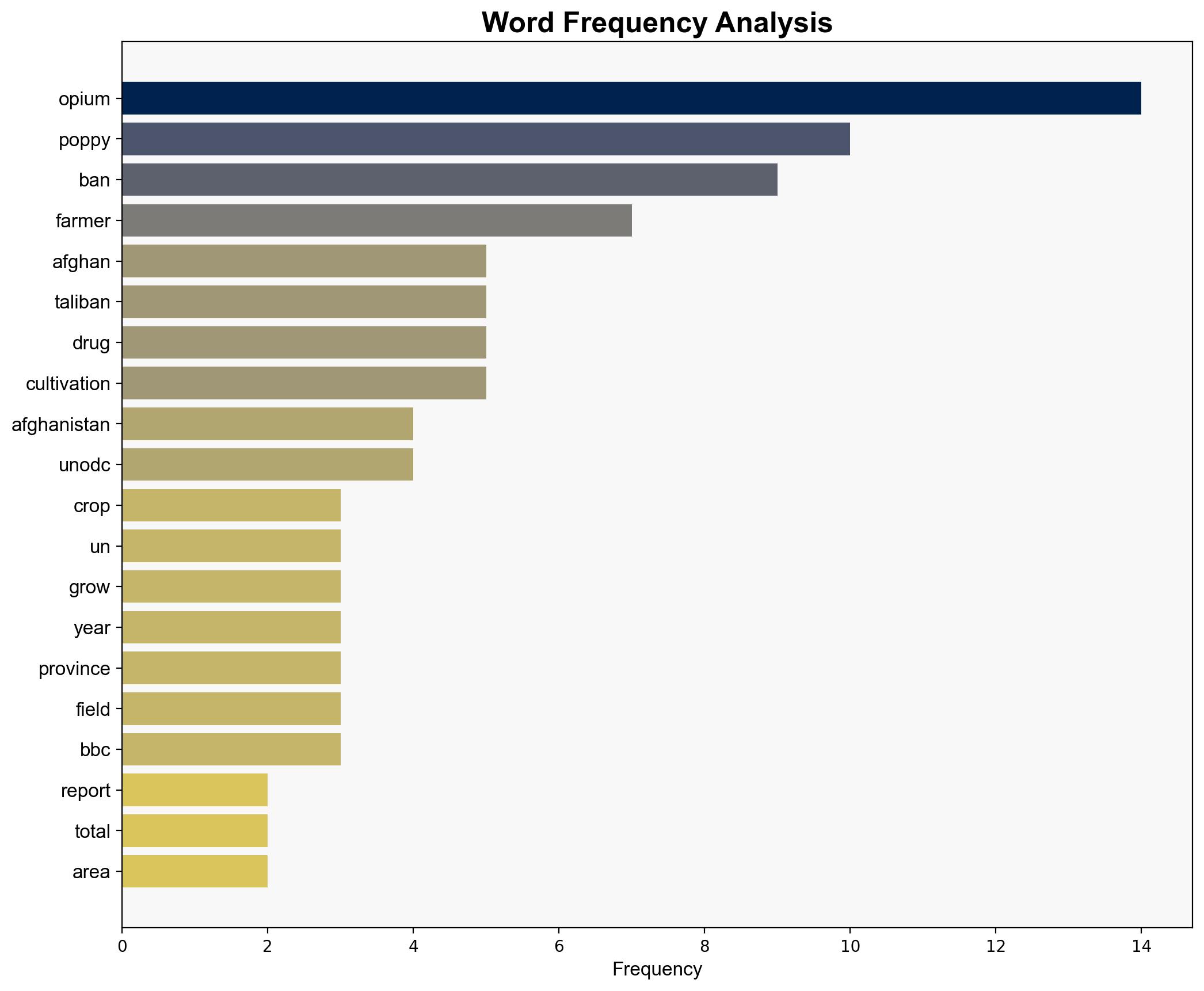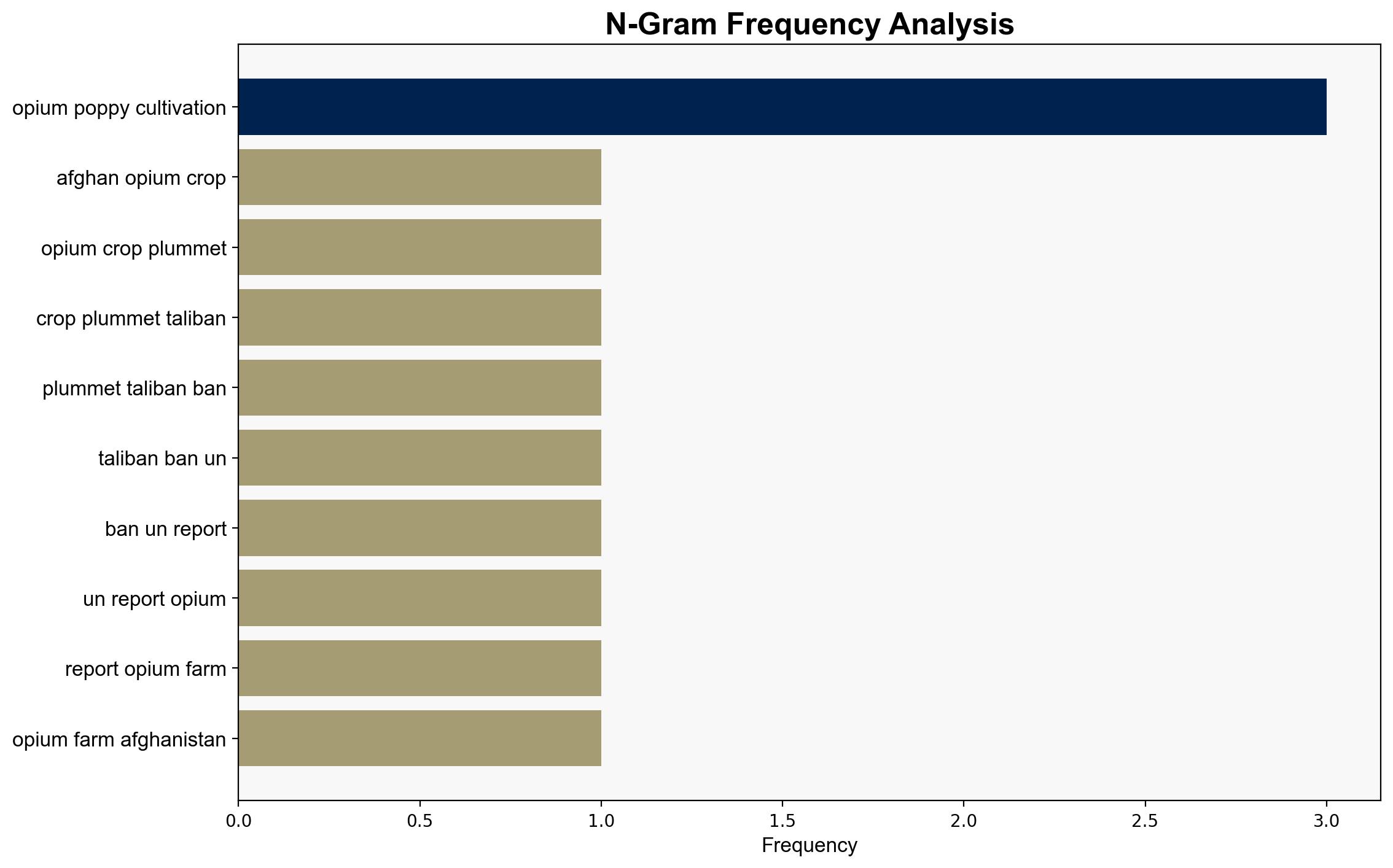Afghan opium crop plummets after Taliban ban UN survey finds – BBC News
Published on: 2025-11-06
Intelligence Report: Afghan opium crop plummets after Taliban ban UN survey finds – BBC News
1. BLUF (Bottom Line Up Front)
The significant reduction in Afghan opium cultivation following the Taliban’s ban is likely to have complex implications for both regional stability and global drug markets. The most supported hypothesis suggests that the Taliban’s enforcement of the ban is genuine, albeit with economic and social repercussions. Confidence level: Moderate. Recommended action: Monitor shifts in drug trafficking patterns and support alternative livelihoods for Afghan farmers.
2. Competing Hypotheses
1. **Hypothesis A**: The Taliban’s ban on opium cultivation is effectively enforced, leading to a genuine reduction in opium production. This hypothesis is supported by the reported decrease in cultivated land and adherence by the majority of farmers despite economic hardships.
2. **Hypothesis B**: The reported reduction in opium cultivation is overstated, with clandestine operations continuing. This hypothesis considers the possibility of deception or underreporting, given the economic incentives for farmers to continue cultivation and the existence of hidden fields.
Using ACH 2.0, Hypothesis A is better supported by the UN survey data and reports of violent enforcement actions, although Hypothesis B cannot be entirely dismissed due to potential biases in reporting and the economic context.
3. Key Assumptions and Red Flags
– **Assumptions**: The UN survey data is accurate and comprehensive. The Taliban’s religious motivations are the primary driver of the ban.
– **Red Flags**: Potential underreporting of clandestine cultivation. Economic desperation may lead to non-compliance. Reports of synthetic drug production rising could indicate a shift rather than a reduction in drug-related activities.
4. Implications and Strategic Risks
The reduction in opium production could destabilize local economies reliant on poppy cultivation, potentially increasing poverty and unrest. The rise in synthetic drug production poses a new challenge, potentially altering trafficking routes and impacting regional security. The Taliban’s enforcement actions may provoke resistance, leading to further violence.
5. Recommendations and Outlook
- Enhance monitoring of synthetic drug production and trafficking routes to preempt shifts in drug markets.
- Support international efforts to provide Afghan farmers with viable alternative livelihoods to mitigate economic impacts.
- Scenario Projections:
- Best: Successful transition to alternative crops reduces reliance on opium.
- Worst: Escalation of violence due to economic desperation and resistance to enforcement.
- Most Likely: Continued reduction in opium with a rise in synthetic drug production.
6. Key Individuals and Entities
– Taliban leadership
– UN Office on Drugs and Crime (UNODC)
– Afghan farmers (unnamed sources)
7. Thematic Tags
national security threats, drug trafficking, regional stability, economic impact




